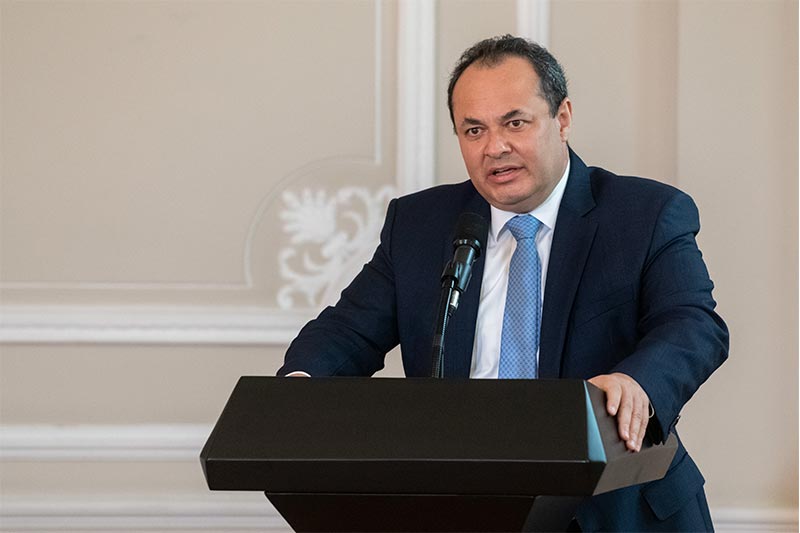Setting Latin America in Start-up Mode to Accelerate Economic Recovery
At an event organized by CAF and the Presidency of Colombia, Colombian President Iván Duque assured that his country wants to become the Latin American Silicon Valley, and recounted the progress made by his government, such as the creation of the Ministry for Digital Transformation and a public policy framework included in the National Development Plan.
During the event The Great Digital Acceleration in Latin America: How to Set the State in Start-up Mode for Recovery?, organized by CAF—development bank of Latin America—and the Presidency of Colombia, President Iván Duque assured that Colombia is accelerating the digital transformation of the government with its citizens in mind. “Our goal is to create savings, efficiency and accelerate public services with technology, but also to have a positive impact on transparency and oversight on the civil service.”
In addition, CAF executive president Luis Carranza said that the pandemic has exposed the importance of digitalization. “The future is here and we need to react not only for recovery, but to work towards an inclusive and prosperous future. CAF has focused “on the use of artificial intelligence and data to improve public policies, to advance regulatory improvement and streamline administrative procedures, to advance public management transparency and to help our municipalities become smart cities,” Carranza said.
The event featured international experts from France, Italy and the United Kingdom, Chile, Colombia and Brazil, among others, who analyzed the most effective strategies for Latin American governments to accelerate digital transformation processes of the state and thus contribute to economic recovery.
In the first panel, focusing on the strategic use of data and artificial intelligence in the public sector, MP Paula Forteza, who represents French citizens in Latin America and the Caribbean, assured that a key issue to leverage artificial intelligence for the solution of public problems is opening data and defining ethical principles related to its use. “Data can be used to train different models and algorithms. The more access to free data or large databases, the more we can develop an artificial intelligence policy.”
Furthermore, Presidential Counselor for Economic Affairs and Digital Transformation Víctor Muñoz emphasized that the country has a comprehensive digital transformation policy, and noted that “we emphasize artificial intelligence and its responsible use to generate disruptive processes.”
The second panel discussed how governments in the region can massively incorporate technology and data base venture solutions to deliver better public services to citizens. UK Global Digital Market Program Director Warren Smith noted that the main challenge for the future of GovTech is the promotion of collaboration among different sectors and different levels of government. Francesca Bria, president of Italy’s National Innovation Fund, stated that the renewal of governments, economy and society can only be achieved with a forward-looking strategy, leveraging digitization processes and involving society.
As a conclusion, international panelists agreed that financial policies and instruments need to be created to strengthen the digital transformation ecosystem.
CAF's more recent content

CAF, ECLAC, IDB and PAHO Promote Sustainable Development in the G20
The Regional Organizations of the Americas congratulate Brazil on its successful G20 Presidency, highlighting its leadership on key issues such as poverty, governance, and climate change. They also reaffirm their commitment to actions that promote equity and development in the region.
Urgent Call for Action to Safeguard Caribbean SIDS at CAF Symposium
As the global community grapples with the escalating climate crisis, Caribbean Small Island Developing States (SIDS) are running out of time to secure critical investments and support needed to strengthen their economies and protect vulnerable communities from the intensifying impacts of climate change. With the window to take decisive action rapidly shrinking, CAF - Development Bank of Latin America and the Caribbean, in partnership with the Commonwealth Secretariat and the Antigua and Barbuda High Commission, brought together key stakeholders for a symposium in London to address the critical vulnerabilities Caribbean SIDS face.




